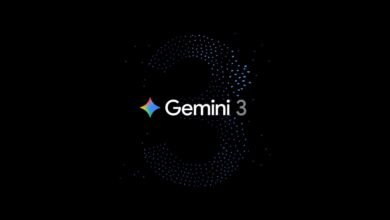Reddit’s AI Search Edge: Why User Journeys Beat Short Queries

▼ Summary
– AI search engines now crawl significantly more pages per click than before, with Google crawling 18 pages per click and OpenAI crawling 1,500, while 60% of Google searches ended without a click in 2024.
– Reddit is the most cited domain across major AI platforms because it provides authentic peer advice that users trust over corporate marketing messages.
– Modern customer journeys involve a progression of questions where each answer informs the next, and understanding this sequence is key to providing relevant solutions.
– Marketing success now depends on solving users’ real problems with authentic, contextual advice rather than just chasing traditional metrics like rankings and clicks.
– People seek validation and shared responsibility in decision-making, preferring to learn from others’ real experiences to feel smart about their own choices.
Understanding the complete customer journey has become the cornerstone of effective digital marketing, moving far beyond simple keyword rankings. A recent industry webinar highlighted a fundamental shift in how people make purchasing decisions, emphasizing that authentic user conversations are now more valuable than traditional marketing messages. This evolution is driven by a growing preference for peer advice over corporate content, a trend clearly visible in the data.
Traffic analysis reveals a startling change in online behavior. A decade ago, search engines might have crawled two web pages for every user click. Today, that figure has skyrocketed to 18 pages per click, with some AI platforms crawling exponentially more. Even more telling, a significant majority of Google searches now end without the user clicking through to a website, as AI tools provide direct answers on the results page. This signals a profound shift in trust; people increasingly rely on AI summaries and are less inclined to follow links to their original sources.
The prominence of platforms like Reddit in search results is a symptom of this larger trend. It appears in nearly all product review searches not as an anomaly, but as a solution. When consumers compare high-end smartphones, for instance, the conversation generates immense social media engagement but little traditional search volume. Reddit is the most frequently cited domain across major AI platforms, accounting for a share of citations that dwarfs even Wikipedia. What these platforms offer is genuine peer-to-peer insight, the kind of contextual advice that makes a user feel understood rather than sold to.
The real magic lies in mapping the customer’s research progression. Consider a practical example: a person buys a wool carpet and learns their powerful Dyson vacuum will void the warranty. This sparks a multi-stage investigation. They begin by asking why the Dyson is unsuitable, then search for suction-only vacuums, and finally investigate specific models like the Miele C1. Each answer naturally informs the next question. Understanding this sequential journey is critical because it reveals the actual problems people are trying to solve. Sometimes, this entire process condenses into a single, powerful interaction. An AI might immediately recommend a Miele vacuum in response to the initial question about the Dyson, demonstrating massive conversion potential from a single, well-understood query.
The evidence supporting this approach is compelling. Data indicates that users referred from advanced AI platforms view significantly more pages per session than those from traditional search, showing greater intent and deeper engagement. This validates the idea that solving real user problems drives stronger results than simply chasing keyword rankings. The brands that will succeed are those that identify critical moments in customer conversations and offer genuine solutions.
This requires a shift in success metrics. While rankings and clicks still have a place, the new key performance indicators are different. Marketers must ask: Is our product the recommended solution throughout the customer’s journey? Does our content demonstrate contextual relevance that makes users feel understood? Can we track our influence along actual conversion paths? Winning now depends on solving the biggest problems users face.
Authenticity is non-negotiable in this new environment. It demands honesty about both strengths and limitations. The most effective engagement occurs at the intersection of community expectations, what a brand can honestly deliver, and its business objectives. This principle was demonstrated by a social media campaign that initially faced rejection. Once the audience recognized the humans behind the brand having real conversations, the dynamic flipped completely, leading to collaborative idea-sharing and community endorsement.
This strategy works because it is rooted in human psychology. People have a natural desire to share responsibility for significant decisions. They seek validation from others who have firsthand experience, wanting to feel they’ve made a smart choice based on reliable information from trusted peers. Often, consumers begin their search with the wrong question, believing they need “the best vacuum” when their true need is “a vacuum safe for a wool carpet.” It takes layered, conversational depth to uncover the real issue.
The underlying principle is universal. While Reddit currently makes these conversations highly visible, the lesson applies everywhere. The future belongs to brands that prioritize understanding real problems, engaging authentically, and focusing on issue resolution over product promotion. This demands that marketers slow down and truly listen to their customers, mapping out each stage of the journey to provide the validation and solutions people genuinely need to feel confident in their decisions.
(Source: Search Engine Journal)





